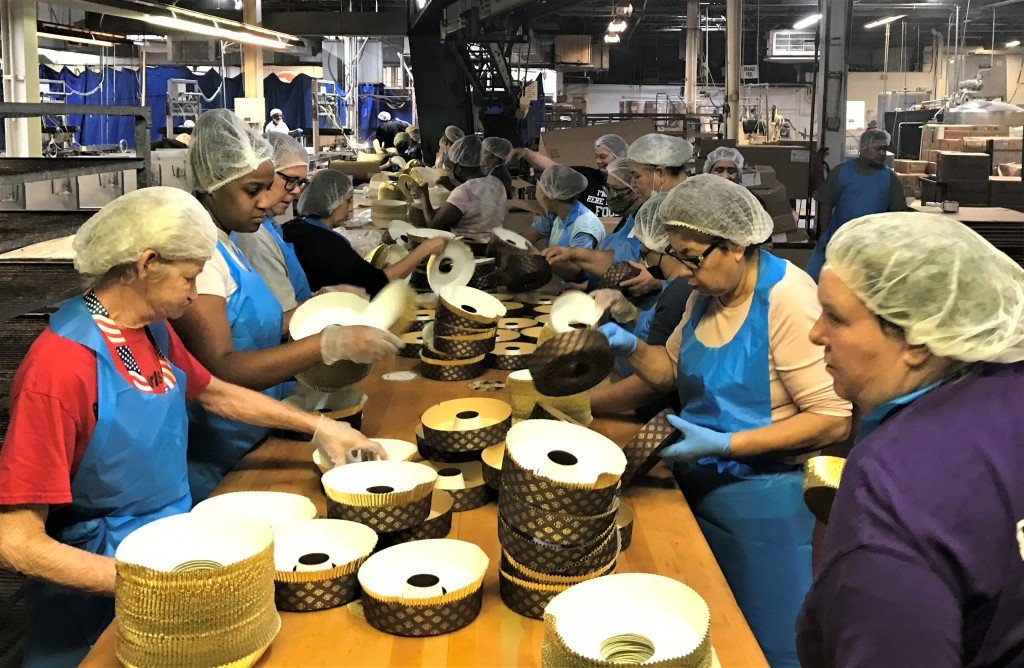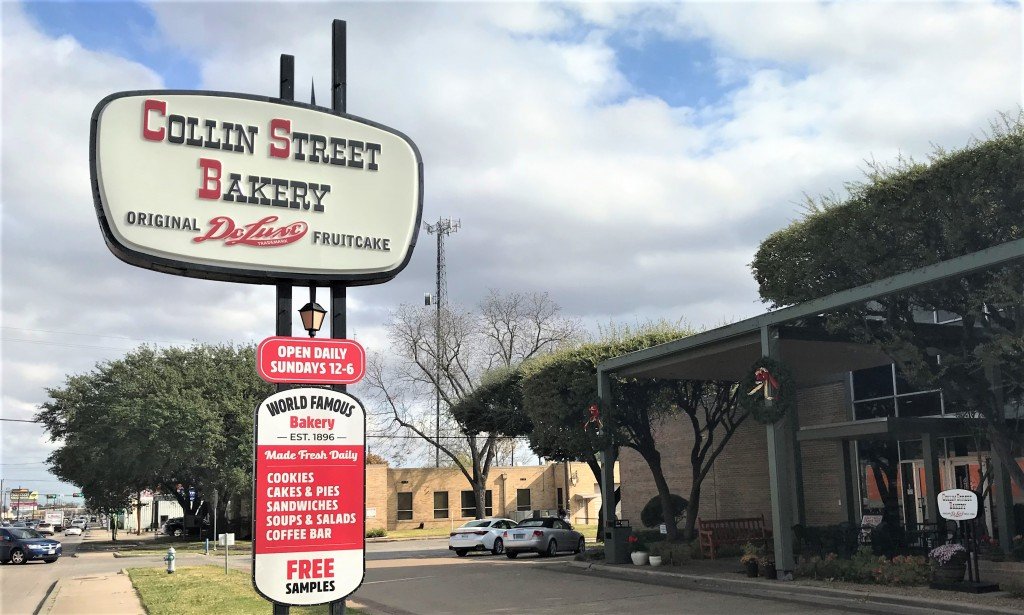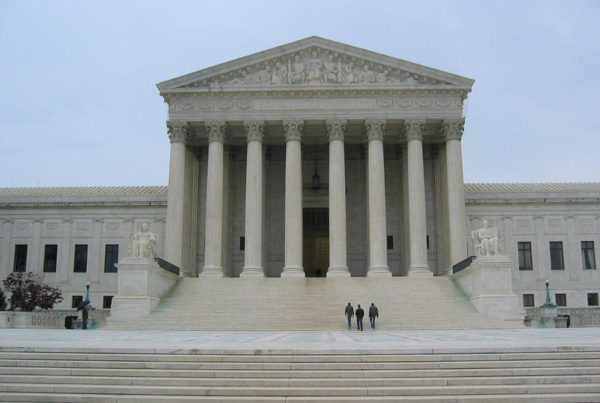Below this story, you’ll find the transcript of an interview with documentary filmmaker Celia Aniskovich, the director of “Fruitcake Fraud.” You can listen to audio from the story and the interview is above.
The Collin Street Bakery in Corsicana is a Texas institution for many — including 87-year-old Dorothy Goodman. She’s been buying its DeLuxe fruitcake — driving the 140 miles roundtrip from Arlington to Corsicana — every Christmas season for 30 years.
Why does she keep coming back?
“Because the cakes are delicious,” she said.
But it’s possible to order them online now.
“Noooo, it’s not the same thing!”
Behind all the holiday cheer, all the history and family memories, is a 30-million-dollar-a-year business. Collin Street has a production line with ovens that bake two-thousand, three-thousand cakes at a time. Normally, 100 employees work on the line, in the office and the four bakeshops. But during peak season, that leaps to 500 — as they create one million fruitcakes or more, shipping them to 196 countries around the world.
Despite this booming business, Collin Street, about a decade ago, kept coming up short financially. Year after year. Raises were stopped. They had to lay off people. Management was baffled.
















